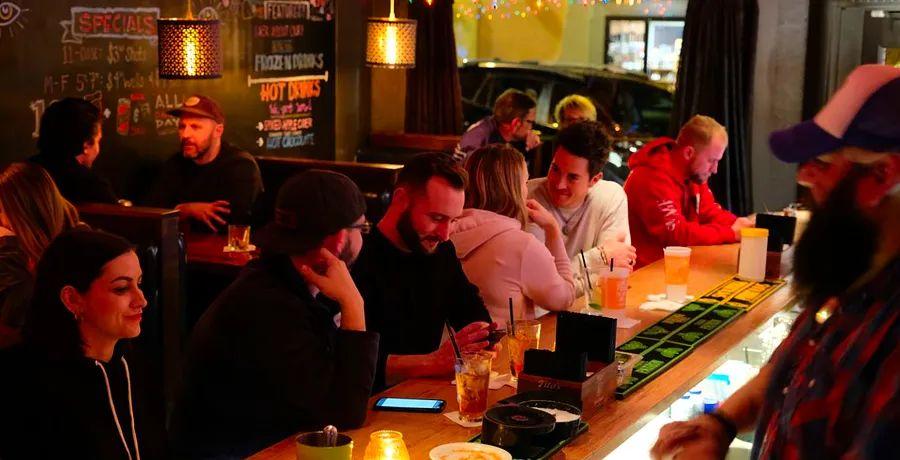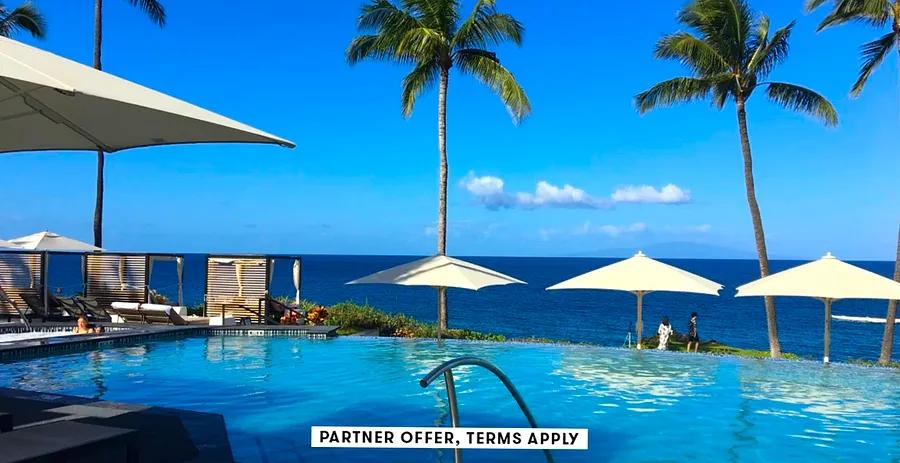Two Oklahoma Groups Are Crafting a Model for Thriving Queer-Owned Restaurants

A decade ago, the queer scene in Oklahoma City was limited to a handful of gay bars and the long-standing gay staple, Hotel Habana (now known as the District), located in the 39th Street Entertainment District. Then came 84 Hospitality and Humankind Hospitality, two prominent restaurant groups in Oklahoma City that happen to be queer-owned, embarking on significant expansions across the city. While the local LGBTQ community has yet to gain the national acclaim of vibrant hubs like San Francisco's Mission or Chicago's Northalsted, these two groups have rapidly emerged as local leaders, potentially providing a model for fostering queer restaurant communities in other areas.
The journey began in 2009 with Humankind's opening of Picasso Cafe, which quickly became a beloved hangout for vegan-curious queers, reminiscent of the sitcom Cheers. The group has since become a key player in the Paseo Arts neighborhood, which offers a more inviting alternative to the nightlife-heavy gayborhood. This area now features Humankind’s popular drag brunch spot, the Other Room, right next to Picasso, along with the stylish Frida Southwest and the Baja-inspired OSO Paseo nearby. Meanwhile, 84 Hospitality kicked off its own success story in 2013 with Empire Slice House, a laid-back hipster pizzeria adorned with Freddie Mercury memorabilia. They've since expanded with lively venues like Revolucion, the edgy Burger Punk, and trendy Goro Ramen, culminating in the charming Neon Coffee, known for its peanut butter bomb iced lattes and BLT doughnut sandwiches just across from their original location.
These groups play a vital role as queer-owned businesses in a state that is often unwelcoming to LGBTQ individuals. Oklahoma ranks among the lowest in the nation for LGBTQ rights, with anti-trans legislation and discrimination being alarmingly common. In April, the state senate proposed a bill reminiscent of Florida’s infamous Don’t Say Gay law, aiming to restrict school libraries from carrying books that discuss “the study of sex, sexual lifestyles, or sexual activity.” In a less populated and less inherently queer market than places like West Hollywood, there is a pressing need for safe havens in establishments like restaurants, where patrons can connect with owners and staff who reflect their own identities. “On one level, [Oklahoma City] has always kinda been a haven for LGBTQ kids,” notes Greg Horton, a seasoned food writer at Oklahoma City’s 405 Magazine. “These companies have excelled at creating a sense of safety for LGBTQ youth and their employees, and they’ve been outspoken about it throughout.”
 Burger from Burger Punk.
84 Hospitality
Burger from Burger Punk.
84 Hospitality Doughnuts from Neon Coffee.
84 Hospitality
Doughnuts from Neon Coffee.
84 HospitalityHowever, 84 and Humankind have not merely endured in a challenging landscape; they have flourished.
The nightlife in the city’s once dismal gayborhood previously felt narrow, fragmented, and exclusive. In contrast, 84 and Humankind have embraced a wider appeal, establishing a dozen strong community hubs between them, even as venues in more traditionally queer-friendly cities have faced financial challenges exacerbated by the pandemic. The spots where queer individuals gather for New York-style pizza, vegan meatloaf, or spicy chicken are also popular restaurants where devoted patrons visit several times a week and employees bring in their friends to join the team. “Everyone that walks in that door is family,” states Seth Lewis, the Festival of the Arts director with the Arts Council of Oklahoma City and a frequent visitor at Humankind establishments. “Many people grapple with a lack of feeling welcomed and valued in life, and if you can experience that sense of recognition while dining out, it creates warmth. It fosters a feeling of belonging.”
This commitment to community and stewardship goes beyond just customers; it encompasses the entire neighborhood. “When we develop new concepts, I always ask myself three questions: Am I passionate about this? Is it distinctive? Does it benefit the community around us?” shares Rachel Cope, CEO of 84 Hospitality. “Ultimately, it’s about having a positive impact on the area we serve.”
“While we recognize that we’ve been something special for over a decade, we also value what came before us,” remarks Kindt Steven Myers, vice president of Humankind. “We view ourselves as caretakers of the neighborhood. Our priority is to reach out to local residents for job openings and keep our restaurants open for extended hours to become reliable staples in the dining landscape. “We like to joke that we’re like the post office, operating rain or shine, regardless of the weather,” he adds.
When the group launched Frida in 2014 on a previously vacant lot, Myers explains that they worked diligently to outbid other contenders “who might not share our vision for revitalizing the Paseo,” securing the location before finalizing a concept. They eventually chose to create a sophisticated New American Southwest chophouse, inspired by the Spanish revival architecture of the Paseo and Santa Fe, another artistic city that influenced Humankind’s leadership. This organic growth continued with the casual OSO and an upcoming bar named Flamingo Tiki. “We strive to be thoughtful and cautious in a positive way, focusing on taking good care of our neighborhood. Investing in our people and community is our top priority,” Myers adds.
Despite the anti-LGBTQ legislation in Oklahoma, there are benefits to establishing a presence in the capital, which tends to be more moderate than the rest of the state. Recently, Oklahoma City has experienced a surge of interest, with a notable increase in population and popularity. Lending Tree ranked it as the American city most likely to make a full recovery from the pandemic, and newcomers find Oklahoma City to be significantly more affordable compared to coastal urban centers, where gay bars have faced rising costs for years. This rapidly growing metropolis remains adaptable as it shapes its identity and incorporates influences from its newer, more diverse residents. The queer community is sizable enough to help steer this evolution; Myers notes that rural LGBTQ individuals have been moving to the city for decades.
“The reality is that we have elected officials who are openly hostile to our rights to live freely and authentically. However, there’s also a quiet yet powerful movement forming for and by the people, operating independently of our elected officials and showcasing the limitations of our government,” says Allie Phillips-Shinn, former executive director of Freedom Oklahoma, deputy director of ACLU of Oklahoma, and spouse of Elemental Coffee’s Laura Phillips. “The very challenges of living in Oklahoma also make it a uniquely special place; they create a need for these spaces, enabling them to thrive and operate sustainably.”
 Inside Picasso Cafe.
Humankind Hospitality
Inside Picasso Cafe.
Humankind HospitalityFor Cope, strengthening the community involves collaborating with various LGBTQ organizations, such as participating in OKC Pride Alliance Youth Nights at Factory Obscura and serving as a primary sponsor for OKC Pride. Empire even provided complimentary pizzas to Julius Jones supporters at the Oklahoma State Capitol. “People often underestimate how being a community player can impact your business,” she shares. “It doesn’t always require a financial contribution; it can also be your time or simply spreading the word. Engaging with the community has been crucial for us, and it's something everyone can do.”
“84 is constantly contributing to the community,” Phillips-Shinn notes. “In moments where activists camp out at the capitol, unwavering in their quest for justice, the pizzas from Empire, the coffee from Elemental, and the meals from Humankind keep them fueled. Ultimately, these restaurant owners remain grounded in their origins, recognize the importance of giving back, and help pave the way for further progress.”
“A vibrant city thrives with a safe and flourishing queer community, providing spaces for its members to grow, connect, and love one another. They are not merely an important aspect of a city; they are essential,” Phillips-Shinn states. “This is a dire necessity, and they had the foresight to create these spaces, knowing that the community would gather. The people were already there; we just needed the physical locations to thrive.”
Oklahoma City may have the right conditions for its queer community to thrive, but it's not an isolated case. Empire Slice House has recently opened another location in Tulsa, marking 84's first expansion beyond OKC, with plans for another slice shop in suburban Edmond. As the largest city and political heart of the state, Oklahoma City serves as an ideal launchpad for the queer restaurant scene. This is just the start.
Recently relocated to Oklahoma City, Matt Kirouac is a food and travel writer whose work has been featured in Thrillist, Condé Nast Traveler, Travel + Leisure, and Tasting Table.

1

2

3

4

5
Evaluation :
5/5